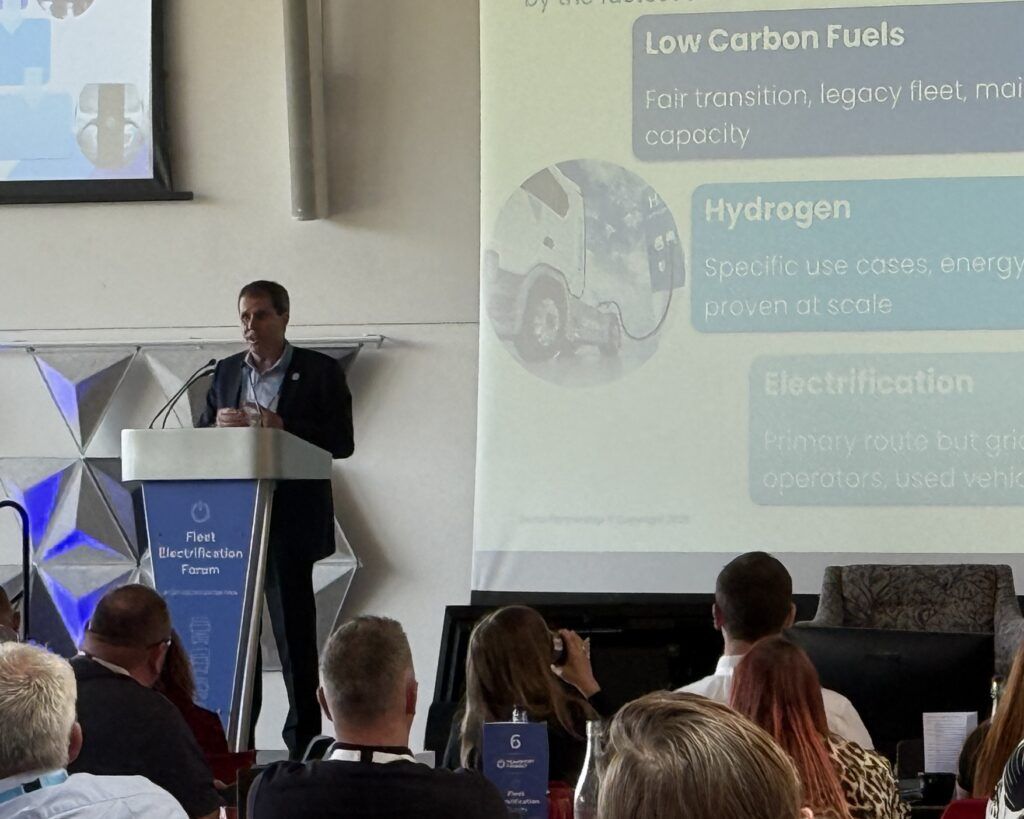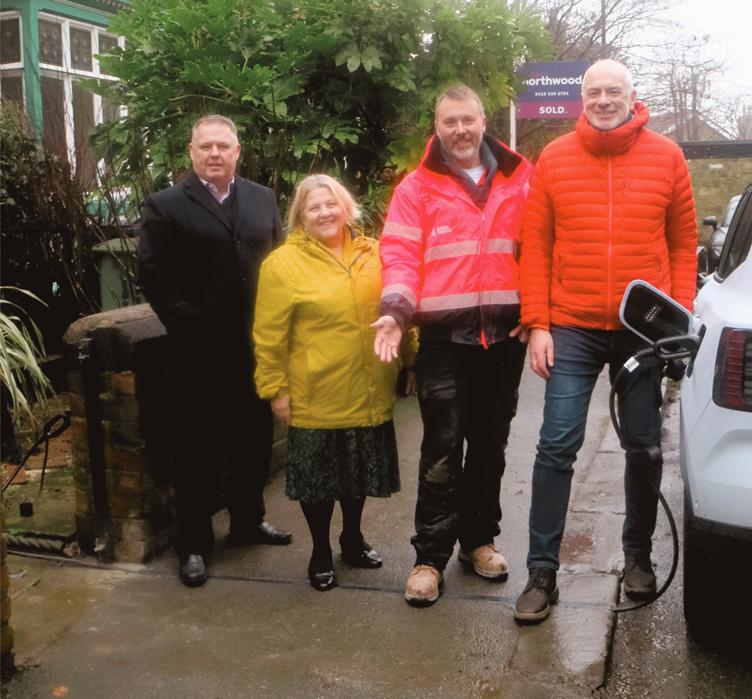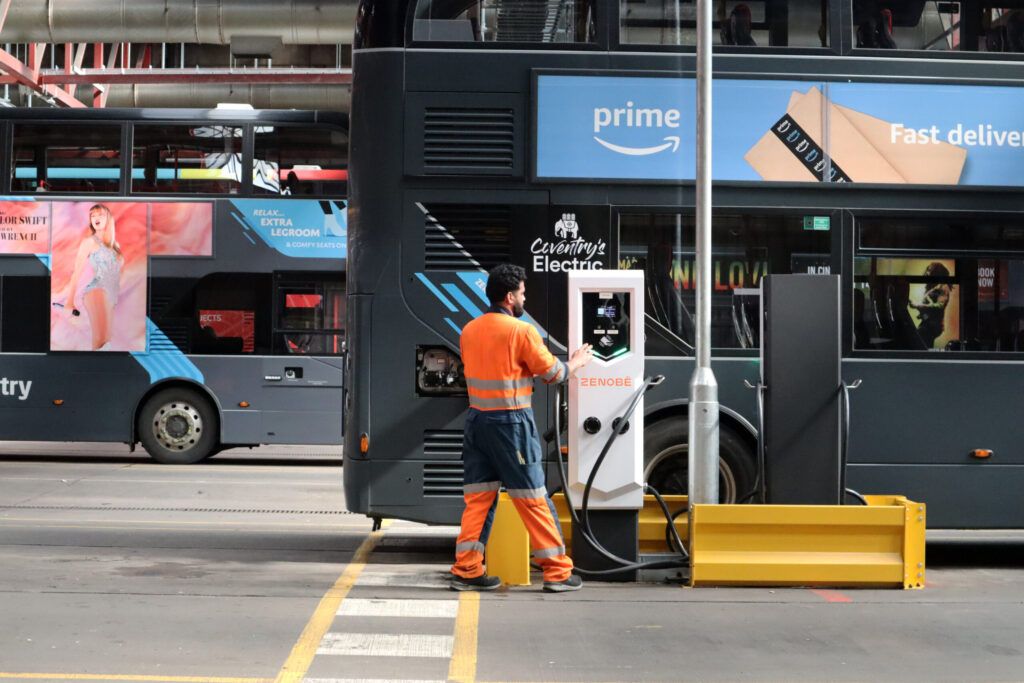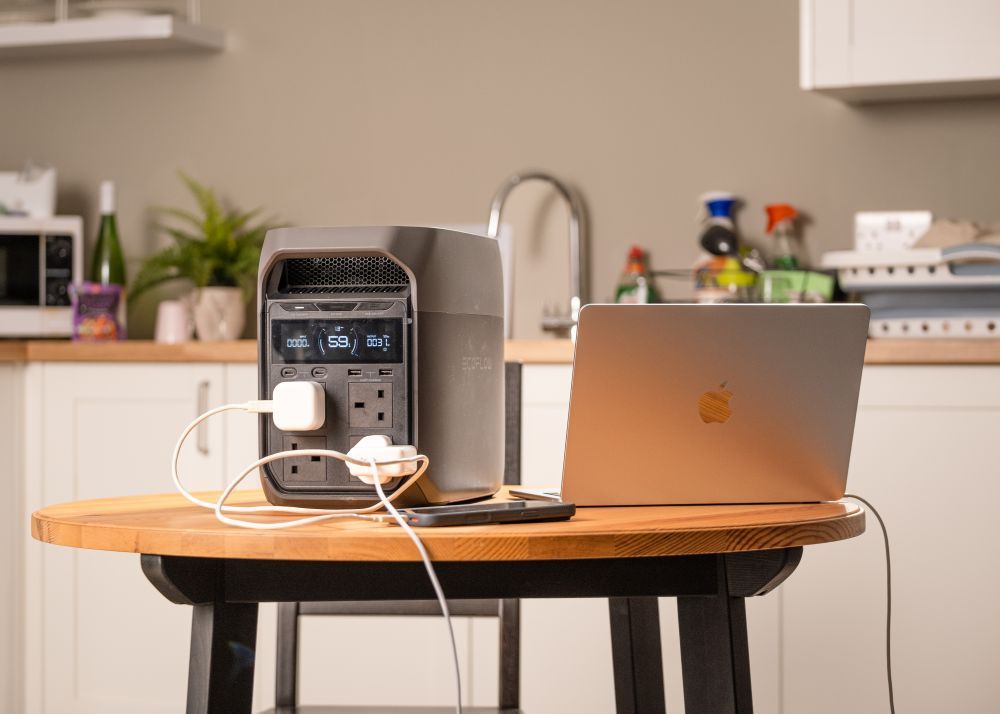Cost effectiveness and understanding local needs is crucial to the decarbonisation of commercial vehicles in Wales, the Welsh Government and Zemo Partnership have explained.
Jonathan Murray, the acting managing director of Zemo Partnership, and Dafydd Munro, the head of transport decarbonisation policy at the Welsh Government, described how the energy and industrial sectors had done a lot of the “heavy lifting” to-date on decarbonisation – but now surface transport would play a crucial role as the “next step”.
The comment came as 77% of attendees at the Fleet Electrification Forum said there should be a ZEV Mandate for truck manufacturers.
Decarbonising now “will keep you ahead of the competition with a real USP”, Munro said, with “zero emission vehicles are increasingly becoming the most cost effective solution”
Jonathan Murray added that the Welsh Government project “really opened my eyes” to the challenges in the country. He said there were some “really interesting problems that needed to be resolved”.
Used vehicles
In terms of electrification, Murray added that “one of the key things was the reliance on used vehicles” in Wales, and the “importance of a fair transition and the legacy fleet is really important”.
He said the M4 Corridor is “really well resourced”, but when heading into the valleys and mid-Wales it was “really constrained” in terms of grid capacity.
Therefore, Murray said that although electrification of fleets will “play the ultimate final role”, other fuel types would be important in the interim.
He said: “Low carbon fuels are going to play a significant role in the short term, while we wait for grid support – and there may be a role for hydrogen.”
On the south coast of Wales, hydrogen has a “sweet spot” due to its industrial background, and other local factors, Murray added.
He said: “This is going to take a while. Electrify where you can, and the van market is going to be the place where this will be able to happen.”
Finance
In the meantime, Murray said that access to finance, creating demand and infrastructure would be important to accelerate the transition for commercial fleets in Wales.
Additionally, energy planning, including grid reinforcement, improved local area energy plans, engagement with DNOs and fleet – as well as capability funding with local authorities – would play a role.
There was also a need to tackle misinformation and debunking myths around electric vehicles, Murray said.
He added: “Explain it and bring people with us, and its not just the operators you need to do that with.”
In terms of working with the DNOs, he said this was “vitally important” to consider future upgrades, but it was also critical to consider “making what infrastructure is already in Wales as accessible as possible for commercial vehicles”.
Murray was keen to stress the requirement for used vehicles in the country, as a net importer, and that identifying the users, and “lining them up in advance”, even creating a consortium to buy used vehicles, would be a useful solution.
Finance does pose “unique challenges”, with most of the issues are one of scale, and consolidation and demand, he said. As SMEs don’t go to corporate funding, and approach the retail banking sector, it was important “to reach out to them as well”.
He concluded: “Creating the conditions for demand, it is a package of measures that are required. It is worth doing because of the cost effectiveness, both from the government’s perspective and the private sector.
“Decarbonising the commercial vehicle sector is very strong in terms of cost effectiveness.”












